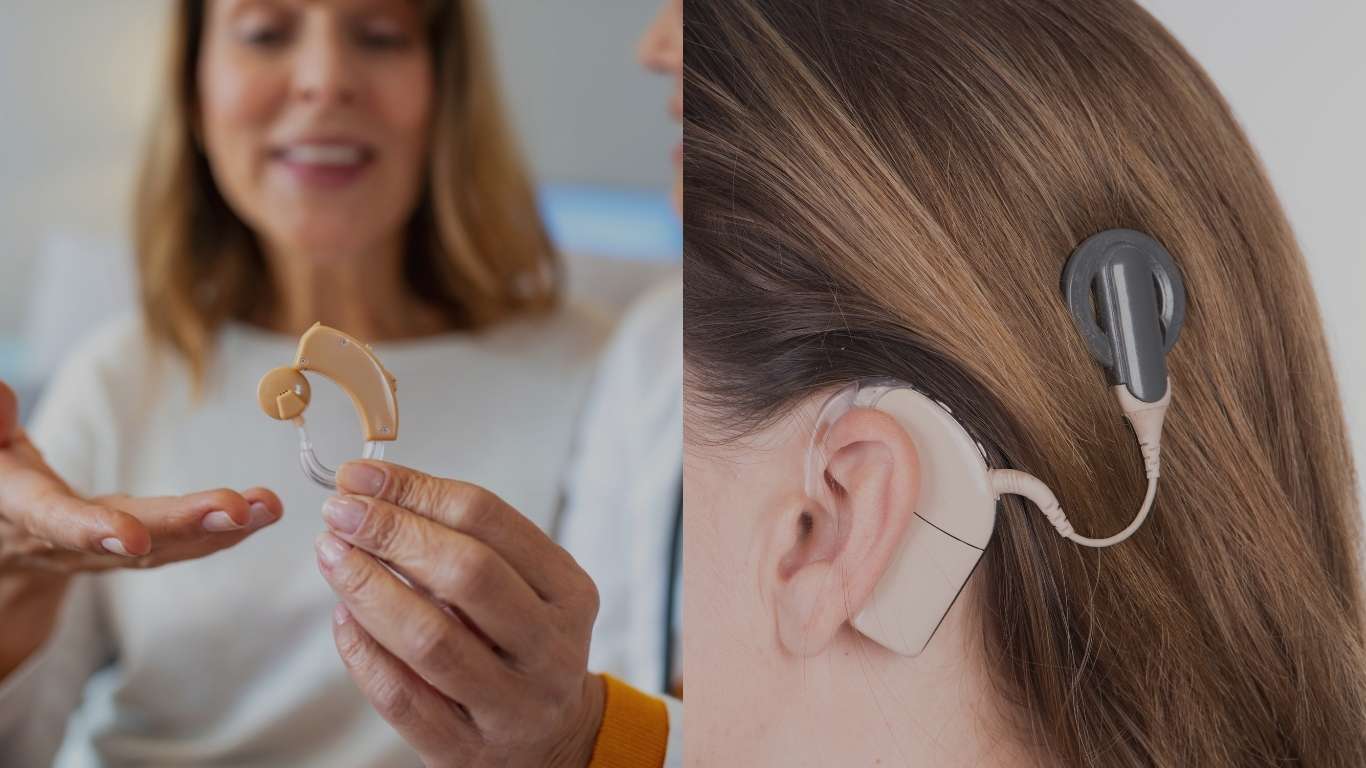
Hearing loss can significantly affect a person's quality of life, making it difficult to engage in conversations, enjoy music, or even hear important environmental sounds. Thankfully, there are effective solutions available to manage hearing loss, with two of the most common being hearing aids and cochlear implants. But how do you know which one is the right solution for you? In this blog, we’ll break down the key differences between cochlear implants and hearing aids, and help you understand which might be best suited for your needs.
How Do Hearing Aids Work?
Hearing aids are small, electronic devices that amplify sound. They are typically worn behind or inside the ear and can be customized based on the degree of hearing loss. Hearing aids are most effective for individuals with mild to moderate hearing loss and rely on amplifying sounds that the damaged ear can still detect.
Key Components of Hearing Aids:
- Microphone: Picks up sounds from the environment.
- Amplifier: Increases the volume of the sound.
- Speaker: Sends the amplified sound into the ear canal.
- Battery: Powers the device.
Hearing aids work by making sounds louder, but they cannot restore normal hearing or help with severe hearing loss. They are suitable for people who still have some level of hearing ability in their inner ear (cochlea).
How Do Cochlear Implants Work?
Cochlear implants, on the other hand, are used for people with severe to profound sensorineural hearing loss who do not benefit from hearing aids. Unlike hearing aids that amplify sound, cochlear implants bypass the damaged parts of the ear and directly stimulate the auditory nerve. This allows sound signals to be sent to the brain, where they are interpreted as sound.
Cochlear implants consist of two main parts: the external processor and the internal implant. The external part picks up sound, processes it, and sends the signals to the internal device, which stimulates the auditory nerve. Over time, the brain adapts to these signals and users can regain a sense of hearing.
Key Differences Between Cochlear Implants and Hearing Aids
1. Type of Hearing Loss
Hearing aids are best suited for individuals with mild to moderate hearing loss, while cochlear implants are typically recommended for those with severe to profound hearing loss who no longer benefit from hearing aids.
2. Technology
Hearing aids work by amplifying sound to make it easier for damaged ears to detect. Cochlear implants, however, bypass the damaged inner ear and directly stimulate the auditory nerve to transmit sound signals to the brain.
3. Effectiveness
For individuals with severe hearing loss, hearing aids may not provide enough amplification to make speech understandable, especially in noisy environments. Cochlear implants offer a more effective solution for severe hearing loss by restoring a functional sense of hearing.
4. Surgical Procedure
Hearing aids do not require any surgical intervention and can be easily fitted by an audiologist. Cochlear implants, however, involve a surgical procedure to implant the device into the ear. The surgery is followed by a period of rehabilitation to help users adapt to the new way of hearing.
5. Cost
Hearing aids are generally more affordable than cochlear implants. However, cochlear implants are often covered by insurance or national health programs for eligible candidates. Hearing aids, depending on the type and features, can range widely in price and may not always be fully covered by insurance.
Which Option is Right for You?
Deciding between a hearing aid and a cochlear implant depends on several factors, including the degree of hearing loss, lifestyle, and personal preferences. Here’s a quick guide to help you understand which might be the right solution:
Choose a Hearing Aid if:
- You have mild to moderate hearing loss.
- You can still benefit from sound amplification.
- You prefer a non-surgical solution.
- You are looking for a more cost-effective option.
Choose a Cochlear Implant if:
- You have severe to profound hearing loss.
- Hearing aids no longer provide enough benefit.
- You are a candidate for cochlear implant surgery.
- You want to restore hearing even in noisy environments.
Conclusion
Both hearing aids and cochlear implants have their benefits, and the right choice depends on your specific hearing loss and lifestyle. Hearing aids are great for individuals with mild to moderate hearing loss, while cochlear implants offer a solution for those with more severe hearing impairments. Consulting with an audiologist or an ENT specialist is the best way to determine which option is right for you.
Whichever solution you choose, it’s important to remember that both options can dramatically improve your ability to hear and enhance your quality of life.
Reviews
No reviews yet. Be the first to leave a review!






Leave a Reply
Your email address will not be published. Required fields are marked *